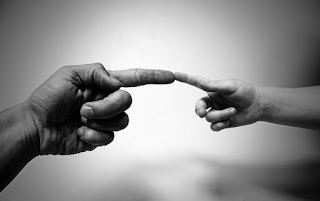JULY 18 2020 STEPHANIE SHIPP B.A., J.D., CTRC
CERTIFIED TRAUMA RECOVERY COACH

SO YOU'VE BEEN SWEATING YOUR WAY through recovery from trauma. And little by little you've started to notice something . . . . . some days, you feel GOOD. You have moments where you feel something you thought was impossible for you - you feel HAPPY?!
Is that even possible? How can someone who suffered through what you have been through, feel HAPPY? Do you even have a right to feel happy? Do you have to feel it all the time?
WHAT DOES IT MEAN TO FEEL HAPPY?
This sounds like an absurd question. Doesn't everyone know what it feels like to be happy?
Sadly, many trauma survivors do not. And it's not our fault.
Those of us who were raised by chronically unhappy parents who modeled nothing but dissatisfaction, sadness, anger and so on, never saw happiness in our homes. Many survivors were consumed with trying to just survive trauma - happiness was not part of that equation.
Happiness may be triggered by a huge variety of experiences, from anticipating a long holiday weekend, to enjoying the glory of a beautiful sunset, or maybe watching your children play with abandon, not facing the anxieties and fears you faced as a child. The triggers for feelings of happiness are infinite and individual.
IT'S NOT A COMPETITION! NO ONE IS HAPPY ALL THE TIME.
Isn't "being happy" an absolute? Like being either dead or alive . . . You're either happy or unhappy, right?
Happiness is not a feeling that people experience constantly. Contrary to the American fiction of happiness as a constant state - what I call "pathological happiness", true happiness is an experience that comes and goes. In American culture, feeling anything but chronic happiness is considered a failure. But this is not the reality of the human experience - and we need to get real about that.
Happiness co-exists with sadness, grief, longing, loneliness, worry and yes, even anxiety. These are all parts of the rainbow of the human experience. You won't be happy all the time. Even if you're taking the best anti-depressant in the world, you will still have moments of unhappy feelings.
But guess what - as recovery progresses, little by little, you start to have your moments of happiness. Your life starts to take shape in a way that is no longer SOLELY defined by your trauma - and you become able to see beyond the trauma. The trauma starts to lose its blinding grip on your existence. That's when happiness can start to express itself.
THE COMPARISON MONSTER . . . . .
You may have often told yourself in the past "I'm broken beyond repair - I will never be happy". And you may look around yourself and fall into the trap of narrowly defining what happiness looks like. We are certainly told incessantly that happiness looks a certain way: professional success, the perfect marriage, children, physical health, and possessing wealth, and the implication is you cannot be happy without these things.
What's the reality look like? You can have very few physical possessions and be happy. You can be divorced or never married and experience happiness. You can be a trauma survivor and experience happiness. And each person's version of happiness can look quite different.
It's really important as a part of recovery, to take possession of your own happiness, whatever it looks like, and don't judge it against the unrealistic "ideal".
THINGS SURVIVORS CAN FEEL HAPPY ABOUT.....
We can celebrate many victories during our recovery and feel great joy and happiness about them. Here are just a few:
Having the courage to leave a toxic relationship
Learning to build boundaries with toxic people
Noticing how recovery makes you a better parent, friend, spouse
Sharing your story of survival and healing so that you light the way for others
Becoming more resilient when setbacks occur
The realization that you have moved from survival mode, to thriving
Finding joy in figuring out how relationships work when they are not blocked by your trauma experience.
Figuring out how to build healthy connections with others
Being able to sleep at night
Discovering that triggers don't have much effect on you anymore, and that you bounce back quickly when you feel triggered (resilience)
Being able to rebuild relationships that were harmed by your trauma journey
Feeling light, unburdened, and truly alive
BUT DO I HAVE A RIGHT TO EXPERIENCE HAPPINESS?
Yes, beloved, you do. It's your natural right as a human being to feel the entire range of human emotions and happiness is one of them!
Part of recovery is no longer embracing your abuser's implicit or explicit definition of you as "bad" or "unworthy", and no longer defining yourself by your past mistakes. People who feel happy are also people who have made mistakes, suffered abandonment, abuse, neglect, bullying etc.
You can start to feel happiness and you can THRIVE!
_________________________________________________________________________________
Got questions or comments: email stephanie@thrivetraumarecoverycoaching.com



Comments
Post a Comment